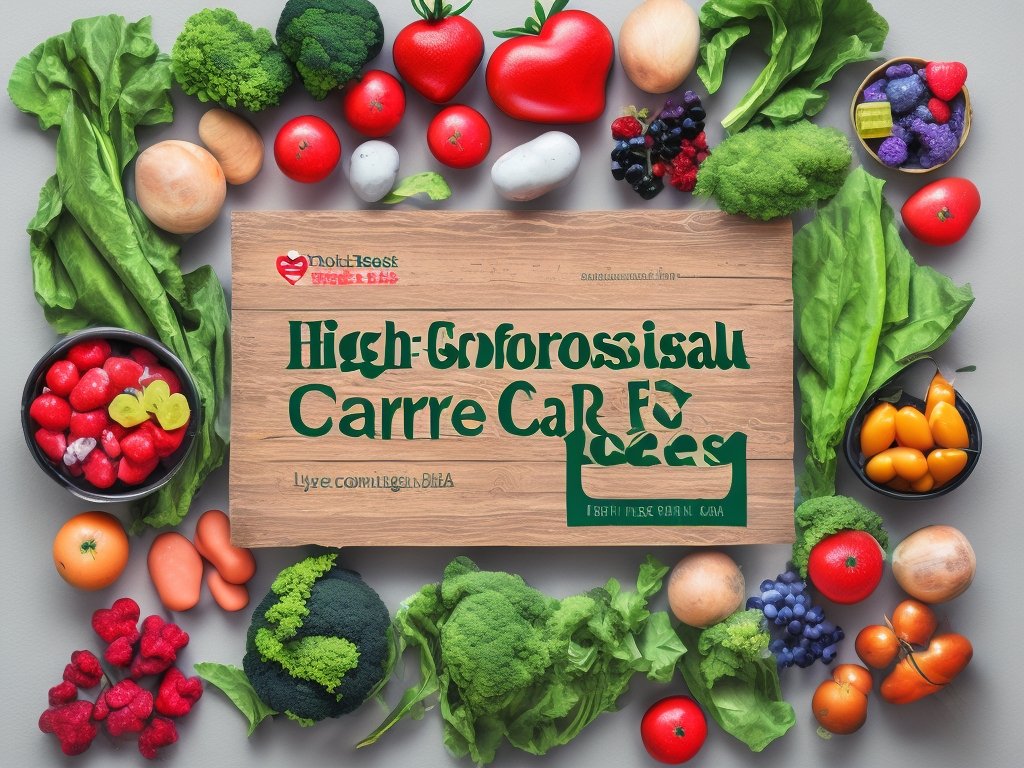
Maintaining a healthy heart is crucial as we age, and the right dietary choices can make a significant difference. Seniors face unique challenges when it comes to cardiovascular health, but with the right approach, they can take control and improve their longevity. Let’s explore the best diets for senior heart care and discover how to incorporate them into a lifestyle that promotes overall wellbeing.
| Diet | Key Benefits |
|---|---|
| Mediterranean Diet | Reduces risk of heart disease, lowers blood pressure, and improves cholesterol levels. |
| DASH Diet | Helps manage high blood pressure, lowers LDL cholesterol, and supports weight management. |
| Plant-Based Eating | Enhances heart function, reduces inflammation, and supports healthy weight and blood sugar levels. |
Dietary Approaches to Reduce Heart Disease Risk
As we age, our risk of developing heart disease increases due to a variety of factors, including changes in metabolism, decreased physical activity, and underlying health conditions. Adopting a heart-healthy diet is one of the most effective ways to mitigate these risks and improve cardiovascular function. By focusing on nutrient-dense, whole foods and limiting processed items, seniors can take proactive steps to support their heart health.
The Mediterranean Diet for Cardiovascular Health
The Mediterranean diet has long been recognized as a highly effective approach for reducing the risk of heart disease. This dietary pattern emphasizes the consumption of plant-based foods, healthy fats, and lean proteins, all of which work together to promote cardiovascular health. By incorporating olive oil, nuts, fruits, vegetables, and whole grains, seniors can enjoy a wide variety of flavorful and nutrient-dense options that support heart function.
Understanding the DASH Diet for Seniors
The DASH diet, which stands for Dietary Approaches to Stop Hypertension, is another well-researched dietary approach that can benefit seniors with heart health concerns. This plan focuses on reducing sodium intake, increasing fiber-rich foods, and emphasizing lean proteins and low-fat dairy. By following the DASH diet, seniors can effectively manage high blood pressure, lower LDL cholesterol levels, and maintain a healthy weight, all of which are crucial for preventing and managing heart disease.
Plant-Based Eating for Improved Heart Function
A growing body of research suggests that a plant-based diet can have remarkable benefits for cardiovascular health. By focusing on fruits, vegetables, whole grains, legumes, and healthy fats, seniors can reduce inflammation, improve blood vessel function, and support overall heart health. This dietary approach not only helps manage conditions like high blood pressure and high cholesterol but also promotes weight management, which is essential for seniors with heart disease.
Adopting a Low-Sodium Lifestyle
Excessive sodium intake is a significant risk factor for heart disease, particularly in the senior population. By adopting a low-sodium lifestyle, seniors can help lower their blood pressure, reduce the strain on their cardiovascular system, and minimize the risk of heart-related complications. This may involve choosing low-sodium or no-salt-added versions of canned and packaged foods, limiting the use of table salt, and focusing on fresh, whole foods that are naturally low in sodium.
Benefits of Healthy Fats and Omega-3s
While it’s important to limit saturated and trans fats, incorporating healthy fats and omega-3 fatty acids into the senior diet can have significant benefits for heart health. Foods like fatty fish, avocados, nuts, and seeds are excellent sources of these beneficial nutrients, which can help reduce inflammation, improve cholesterol levels, and support overall cardiovascular function.
Importance of Fiber and Whole Grains
Dietary fiber and whole grains play a crucial role in heart health for seniors. These nutrient-dense foods can help lower LDL cholesterol, manage blood sugar levels, and promote a healthy gut microbiome, all of which contribute to cardiovascular wellbeing. By incorporating more whole-wheat breads, oats, quinoa, and legumes into their diets, seniors can reap the heart-healthy benefits of these essential nutrients.
Hydration and Heart Health Connections
Adequate hydration is often overlooked when it comes to heart health, but it plays a crucial role in supporting cardiovascular function. Dehydration can lead to increased blood viscosity, which can strain the heart and contribute to the development of heart disease. Seniors should aim to stay well-hydrated by drinking plenty of water and limiting sugary beverages and alcohol, which can have negative impacts on heart health.

Customizing Diets for Individual Needs
While the dietary approaches discussed here offer a solid foundation for senior heart care, it’s essential to recognize that each individual has unique health needs and preferences. Seniors should work closely with their healthcare providers and registered dietitians to develop a personalized nutrition plan that takes into account their medical history, current health status, medication regimen, and lifestyle factors. This customized approach ensures that the dietary changes made are both effective and sustainable for the individual.
Meal Planning and Preparation Tips
Implementing a heart-healthy diet can be a significant lifestyle change, but with the right meal planning and preparation strategies, seniors can make it a seamless part of their daily routine. This may involve batch cooking, freezing portions, and incorporating quick and easy recipes that feature nutrient-dense ingredients. By taking the time to plan and prepare meals, seniors can ensure that they consistently consume the foods that support their heart health.
Sustaining Dietary Changes for the Long Term
Adopting a heart-healthy diet is not a short-term fix, but rather a lifelong commitment to supporting cardiovascular wellbeing. For seniors, sustaining dietary changes can be a challenge, but with the right support systems, accountability measures, and gradual adjustments, they can make lasting improvements to their heart health. Seeking guidance from healthcare professionals, engaging in social activities that promote healthy eating, and finding enjoyment in the process can all contribute to the long-term success of a heart-healthy lifestyle.
Conclusion
Maintaining a healthy heart is a critical priority for seniors, and the right dietary choices can make a significant difference in improving health and longevity. By incorporating the best diets for senior heart care, such as the Mediterranean diet, DASH diet, and plant-based eating, seniors can reduce their risk of heart disease, manage existing conditions, and enhance their overall quality of life. With a focus on nutrient-dense foods, reduced sodium intake, and customized approaches, seniors can take control of their cardiovascular health and enjoy the benefits of a vibrant, active lifestyle.
Frequently Asked Questions
What are the key benefits of the Mediterranean diet for senior heart health?
The Mediterranean diet is widely recognized for its ability to reduce the risk of heart disease in seniors. This dietary pattern, which emphasizes plant-based foods, healthy fats, and lean proteins, has been shown to lower blood pressure, improve cholesterol levels, and support overall cardiovascular function.
How can the DASH diet help manage high blood pressure in seniors?
The DASH diet, which stands for Dietary Approaches to Stop Hypertension, is specifically designed to help manage high blood pressure. By reducing sodium intake, increasing fiber-rich foods, and focusing on lean proteins and low-fat dairy, the DASH diet can effectively lower blood pressure and reduce the strain on the cardiovascular system in seniors.
What are the heart-healthy benefits of a plant-based diet for older adults?
A plant-based diet, which emphasizes fruits, vegetables, whole grains, legumes, and healthy fats, can provide remarkable benefits for senior heart health. This dietary approach has been shown to reduce inflammation, improve blood vessel function, and support overall cardiovascular function, making it an excellent choice for seniors looking to manage or prevent heart disease.

